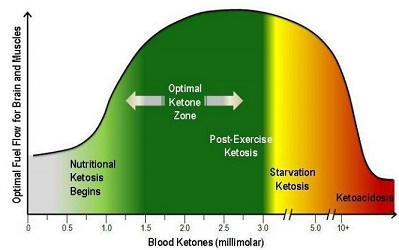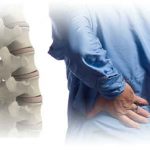I have been toying around with the nutritional ketosis and the cyclical ketogenic diet (not the same things as ‘diabetic ketoacidosis‘) for at least five years, as I started to understand the major health consequences of a high sugar and carbohydrate diet as an endurance athlete. As a result of this process, I came to better understand the role of sugar metabolism and realized that dietary carbohydrates (bread and pasta were the cornerstone of my ‘carb-loading’ diet as a runner) — not fat — were responsible for driving the increase in insulin production and inflammation that are central to every chronic disease seen in the western world.
Completing two Ironman distance triathlons, a few Half-Ironman distances, marathons, ½ marathons, 6 ATBs (30km Hamilton race ‘older than Boston’) included fueling my body with a copious amount of sugary electrolyte drinks, sugar-laden gels, bars, and a carb-loading diet that I was always told to follow — which included eating almost no fat. This list does not include all the extra chemicals and toxins that were added to preserve the products and give them bright, marketable colours. For my last longer distance triathlon, the Half-Ironman Mont Tremblant triathlon, I was in full nutritional ketosis and fuelled with practically no carbohydrates.
If constant high sugar exposure with constant insulin spikes and ongoing inflammation was an optional lifestyle choice, I figured there must be a different way.
Enter Dr. Peter Attia, who was partly responsible for my questioning of all the North American nutritional guidelines that were recommended (including the role of cholesterol and fats in the body, as well as how I fueled my body for endurance training). He also presented this Ted Talk questioning our stance on diabetes and was a co-founder of NuSI.
NuSI’s Mission
The Nutrition Science Initiative (NuSI) is a nonprofit organization dedicated to reducing the individual, economic, and social costs of obesity, diabetes, and their related diseases by improving the quality of science in nutrition and obesity research.
Why NuSI?
“The leadership and supporters of Nutrition Science Initiative (NuSI) believe that Americans are unhealthy, diabetic, and obese—not because they are making conscious decisions to eat unhealthy foods—but because the information and guidance they receive about what to eat has been poorly tested and is quite likely incorrect. This is what we are testing and something we can change. With a strategic mindset, a strong business plan, and scientific excellence, we will lead the way to change within the next decade.”
Sources
 This led me to several other resources that have forged my new path towards a different perspective on nutrition and human longevity/optimization:
This led me to several other resources that have forged my new path towards a different perspective on nutrition and human longevity/optimization:
Tim Noakes who wrote The Lore of Running, the book/encyclopedia on endurance activity. He originally recommended the standard low-fat, high-carb diet, including carb loading. Now that he is a diagnosed pre-diabetic, has changed his tune and is now promoting his low-carb, high-fat (LCHF) approach for athletes. He recommends using a LCHF and ketogenic diet for endurance exercise.
Gary Taubes wrote two books that forced me to ask some questions regarding what I was taught: Good Calories, Bad Calories and Why We Get Fat and What to Do About It.
KetoNutrition, Dr Dominic D’Agostino’s credited for creating momentum in research on nutritional ketosis and ketosis supplementation.
Mark Sisson – The Primal Blueprint, which is a book and, now, a website as well.
Dr Westman (and colleagues) – New Atkins Diet for the New You, which is also a book and website.
Loren Cordain – Author of The Paleo Diet, who recently changed his view on saturated fat.
Ben Greenfield – Beyond Training and Top 10 Mistakes Low-Carb Athletes Make
Jimmy Moore Podcast – Living La Vida Low Carb
My Recommendations
- The first book that I read to provide answers about Nutritional Ketosis is Keto Clarity
- I will review several points from the book that I found helpful to clarify much of the misunderstanding of this approach:
- Ketogenic diet is not a high protein, but a high-fat diet.
- Carbohydrate restriction is a must, but protein restriction is important (often confused with Atkins approach where it is believed you just eat eggs, steak, and bacon).
- Protein is essential, but needs to be limited.
- Eating too much protein can prevent adequate ketone production.
- Get a glucometer and test your blood sugar 1 and 2 hours after eating (after 1 hour, it should be slightly elevated; after 2 hours, it should be back to normal).
- Test your ketones often. I use a Precision Xtra to test both blood glucose and blood ketone levels.
- One of the most user-friendly websites is Dr Andreas Eenfeldt’s The Diet Doctor. I have several patients comment on having learned the most and experience success using this site.
- Chris Kresser’s Complete Guide to Keto
- KetoNutrition, Dr Dominic D’Agostino’s official website: educational platform sharing his research and about ketogenic lifestyle
- Dr. Rhonda Patrick explains real cause of heart disease
- The Art and Science of Nutritional Ketosis is a great Stephen Phinney video on the subject.
- Trying cycling in and out of ketosis, depending on your ketone levels, how you feel, and your activity level. This is what I currently do most often, utilizing intermittent fasting with a coffee with MCT powder or a Bulletproof Coffee, bone broth, Ketogenic Kale Shake, and Cyclical Ketosis.
- Athletes may want to watch these videos by Peter Attia on An Advantaged Metabolic State: Human Performance, Resilience & Health and How to Live Longer and Better
Thanks for reading, and I hope you check out and benefit from some of these foundational resources I’ve listed.














[…] toyed with nutritional ketosis or a ketogenic diet. Currently I use cyclical ketosis with daily intermittent fasting via […]
[…] a self-experimenter, several years ago I started attempting to be in state of nutritional ketosis. This is when I was using intermittent fasting consistently. I am still using intermittent […]